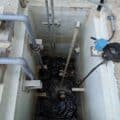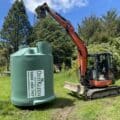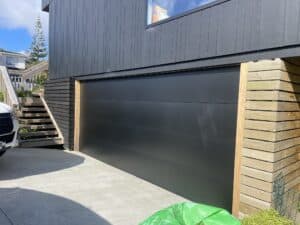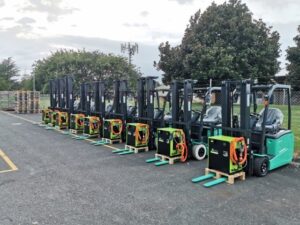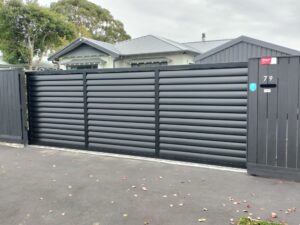Septic tanks. They’re not the flashiest of home features, but when they’re working well, life is smooth sailing. For those in Canterbury’s rural and semi-urban areas, a well-functioning septic tank is as vital as gumboots on a rainy day. Managing your wastewater efficiently isn’t just about convenience—it’s about keeping your property, your family, and our beautiful environment in top shape.
Canterbury’s unique landscape makes septic tanks especially important. Whether you’re dealing with a sprawling lifestyle block or a tucked-away rural retreat, proper wastewater management is a non-negotiable. With regulations designed to protect our waterways and natural resources, installing the right system is both a legal and an environmental necessity.
So, where do you start? That’s what we’re here for. This guide will break down everything you need to know about septic tank installation in Canterbury.
What’s a Septic Tank and Why Do You Need One?
Septic tanks are the quiet achievers of rural living. They’re like the unsung heroes of your property, working behind the scenes to manage wastewater when you’re not connected to a central sewage system.
How Do They Work?
At its core, a septic tank separates solid waste from liquids. Solids settle at the bottom, where bacteria work their magic to break them down, while liquids flow out into a drainage field. It’s a self-contained system designed to keep your property clean and your environment safe.
Septic tanks don’t just make life easier; they’re also a big tick for the environment. By treating wastewater on-site, they help protect our precious rivers, lakes, and soil from contamination. That’s especially important in Canterbury, where our natural beauty is one of the region’s greatest assets.
Why Canterbury Needs Septic Tanks
In many rural areas of Canterbury, central sewage systems simply aren’t an option. Properties are too spread out, and the cost of connecting to urban infrastructure can be astronomical. That’s where septic tanks come in—providing an efficient, localised solution that works for your property and the planet.
With Canterbury’s growing focus on sustainability, having a reliable septic tank is more than just practical—it’s part of living in harmony with the environment. Whether you’re living off-grid or just outside town limits, a properly installed and maintained septic tank is a must-have.
Understanding the Costs of Septic Tank Installation
Septic tank installation might not be the flashiest home improvement project, but it’s one of the most important, especially for Canterbury properties. Let’s break down the costs so you know what you’re in for—and why it’s worth every penny.
What Affects the Price?
A few key factors influence the cost of your septic tank setup:
- Tank Type: Whether you choose concrete, plastic, or fibreglass, the material impacts the price. Concrete tends to last longer but costs more upfront, while plastic and fibreglass offer affordability and easier handling.
- Capacity: The size of your tank depends on how many people call your house home. Larger households mean larger tanks, and bigger tanks mean a bigger budget.
- Soil and Site Prep: Canterbury’s soil conditions can vary from soft loam to stony ground. Testing and prepping the site for installation will add to your costs, but it’s crucial for long-term performance.
What Will It Cost?
For a standard installation in Canterbury, expect to pay between $8,000 and $15,000. If your property needs extensive drainage field construction or you’re navigating tricky regulations, those costs can climb. It’s worth budgeting a little extra for the unexpected—better to be safe than sorry when dealing with wastewater.
Is It Worth It?
Over time, a septic tank can be more cost-effective than paying ongoing fees for central sewage systems. It’s an investment in your property’s functionality and value, and with proper maintenance, your tank will last for decades.
The Installation Process: Step-by-Step
Getting a septic tank installed might sound daunting, but when you break it down, it’s a straightforward process—especially with the right team on the job.
Preparing the Groundwork
- Inspection and Testing: It all starts with a site inspection to determine the best location for the tank. Soil testing follows, ensuring the ground can handle the drainage system.
- Tank Selection: Based on the soil conditions, household size, and local regulations, you’ll choose the right type and size of septic tank for your property.
The Installation in Action
- Digging In: Once the planning’s done, excavation begins. The hole for the tank is dug to precise measurements to ensure everything fits and functions perfectly.
- Placing the Tank: The tank is carefully lowered into place and connected to your home’s plumbing and the drainage field. Every step is checked to meet Canterbury’s compliance standards.
- Testing and Final Touches: Before calling it a job well done, the system is tested to ensure it’s running smoothly. This includes leak checks and making sure the drainage field is dispersing water effectively.
How Long Does It Take?
The entire process typically takes one to two weeks, depending on site complexity and weather conditions. Pre-installation planning and testing may add a few extra days, but it’s all part of ensuring your system is built to last.
With clear steps and a professional approach, installing a septic tank is a manageable process that sets your property up for years of reliable use.
Local Requirements and Regulations in Canterbury
Installing a septic tank in Canterbury isn’t just about digging a hole and dropping in a tank. There’s paperwork to handle, boxes to tick, and standards to meet—but don’t worry, it’s manageable with the right info at hand.
Council Approvals
The Canterbury regional councils play a key role in the approval process. You’ll likely need resource consent before installation kicks off. This involves submitting plans that detail your property’s layout, the tank type, and the drainage field setup. Make sure everything’s squared away—missing a detail can slow things down.
Meeting Compliance Standards
Canterbury has strict rules to ensure septic systems are safe for the environment. Tanks must meet specific design and installation standards, from how they’re made to how they’re connected. Keeping these rules in mind not only avoids legal headaches but ensures your system runs smoothly for years.
Pro tip: Work with a professional installer familiar with the regulations to keep everything above board and avoid fines.
Site-Specific Considerations
Your property’s unique features can impact the approval process. For example, if your site is close to waterways, you may face stricter requirements to protect local ecosystems. Soil type also plays a big role; loamy soils might handle drainage well, but clay-heavy areas could need extra measures.
Choosing the Right Septic Tank for Your Canterbury Property
Picking the right septic tank isn’t one-size-fits-all, especially in Canterbury, where the climate and soil vary. Let’s break down your options so you can make a smart choice.
Types of Septic Tanks
- Concrete Tanks: Durable and long-lasting, concrete tanks are a great choice for properties where heavy use is expected. They’re built tough but can be more expensive and trickier to install.
- Plastic Tanks: Lightweight and easier to install, plastic tanks are often more budget-friendly. However, they may not be as robust in areas with rocky or unstable soil.
- Fibreglass Tanks: These combine durability with a lightweight design, making them a versatile option for many Canterbury homes.
Finding the Right Capacity
Tank size depends on how many people live in your home. Bigger households mean bigger tanks—simple as that. Work with an installer to assess your needs and avoid undersizing, which could lead to overflow issues.
Eco-Friendly Options
For those looking to minimise their environmental impact, consider renewable systems designed for efficiency. Options like advanced wastewater treatment tanks help reduce the strain on local ecosystems while keeping your property self-sufficient.
With the right tank and a bit of planning, you’ll have a system that handles your wastewater needs while blending seamlessly into Canterbury’s stunning landscape.
Maintenance Tips for Longevity
A well-maintained septic tank is the unsung hero of a happy home. Keeping yours in good shape isn’t complicated, but it does require a bit of attention. Here’s how to make sure your system goes the distance in Canterbury’s unique conditions.
Routine Inspections
Think of your septic tank as a car—it needs regular check-ups to stay in top condition. Every few months, inspect for signs of leaks, blockages, or wear. Look for unusual smells or pooling water around the tank. Catching issues early can save a lot of hassle and money down the line.
Pumping Frequency
Even the best tanks need to be pumped periodically. For most Canterbury households, that’s every three to five years, but it depends on your usage and tank size. Regular pumping clears out solids that can build up over time, keeping your system running smoothly.
Seasonal Care
Canterbury’s weather has a mind of its own, and your septic system needs to be ready for it. During wet months, excessive rain can saturate the ground, making drainage harder. Avoid overloading your system during these periods. In colder months, ensure any exposed pipes are insulated to prevent freezing.
Case Study: Successful Septic Tank Installation in Canterbury
Sometimes, the most challenging sites can deliver the best results. Let’s look at a real-world example of how a rural Canterbury homeowner turned a tricky situation into a wastewater management success.
A homeowner near Methven needed a septic system for their off-grid property. The challenge? The site was rocky with uneven terrain, making excavation difficult. Add to that Canterbury’s clay-heavy soil in certain areas, and it was clear this wasn’t a straightforward job.
Working with a professional installer, the homeowner opted for a robust concrete tank, ideal for handling the challenging ground conditions. Advanced soil testing guided the drainage field setup, ensuring optimal performance despite the site’s limitations.
The Results
The finished system exceeded expectations. Not only did it handle wastewater efficiently, but the homeowner also noticed significant cost savings compared to running a connection to the nearest sewage system. The installation improved the property’s value and provided peace of mind for years to come.
This success story shows what’s possible with the right planning, expertise, and equipment. Whether your property is off-grid or just off the beaten track, a reliable septic tank system can make all the difference.
Common Challenges and How to Overcome Them
Installing a septic tank isn’t without its hurdles, but with a little planning, you can sidestep the biggest headaches.
Soil and Drainage Issues
Canterbury’s soils range from sandy to clay-heavy, and not all are ideal for drainage. Soil testing is your first step—it determines if your site is suitable or needs extra prep, like drainage field adjustments. A good installer will guide you through the options.
Unexpected Costs
Surprises are never fun, especially when they hit your wallet. Budget a little extra for site preparation or unforeseen hiccups. Being proactive means you won’t get blindsided by things like additional excavation or council fees.
Regulatory Hurdles
Dealing with council approvals can feel like a marathon. Submit all required documents upfront—site plans, soil test results, and design specs—to keep the process moving. Hiring a local expert who knows Canterbury’s rules can save you time and stress.
FAQs
How long does a septic tank last?
With proper care, a septic tank can last 25 to 40 years. Regular maintenance, like pumping and inspections, keeps it in top shape for decades.
Can I install a septic tank myself in Canterbury?
DIY might seem tempting, but council regulations require professional installation. Plus, the expertise ensures your system meets all safety and environmental standards.
What’s the best way to maintain a septic system?
Routine inspections, timely pumping, and avoiding non-biodegradable waste go a long way. Also, keep an eye on water usage—too much at once can overload the system.
Are there eco-friendly options available?
Absolutely! Modern systems, including renewable energy-powered tanks, are designed with sustainability in mind. Ask your installer about options tailored to Canterbury’s environment.
Wrapping It Up
A well-installed septic tank isn’t just about ticking boxes; it’s about safeguarding your property, the environment, and your peace of mind. Choosing the right system, understanding the costs, and meeting Canterbury’s regulations will set you up for years of hassle-free wastewater management.
For expert advice and dependable installation, a local specialist will have you covered. The professionals will handle the hard yards so you can focus on enjoying your home.
Check out Canterbury council resources for approvals, explore maintenance tips to keep your system running smoothly, and reach out to trusted providers for solutions customised for your needs. Your septic system deserves no less. Interested in Commercial wastewater treatment? Check out our article on how to choose the right Commercial wastewater system.


